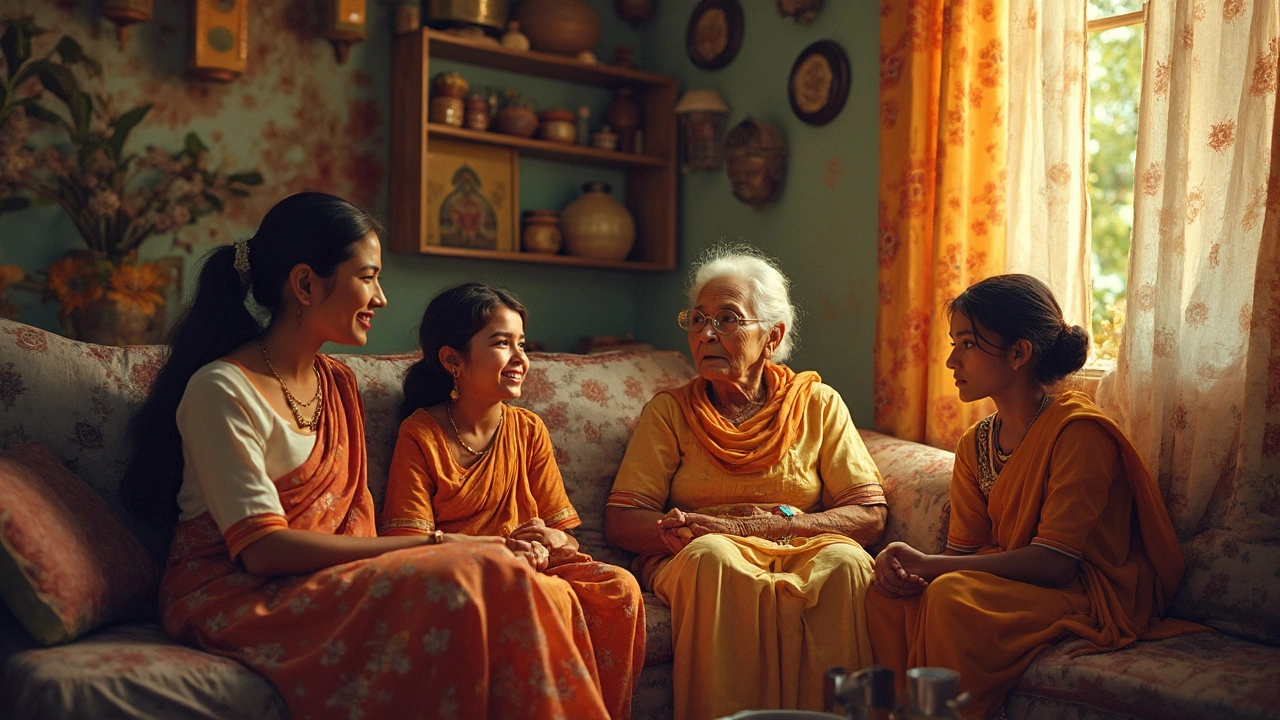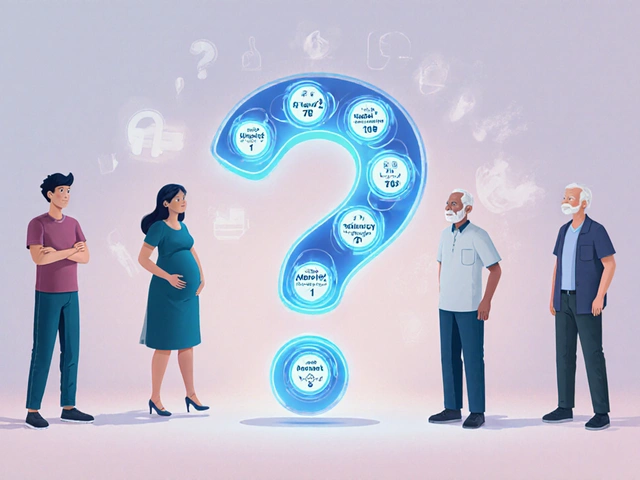The last six months of living with cancer can be a rollercoaster of emotions and decisions. Yeah, it's tough, but it's a critical time to focus on what really matters: comfort and quality of life. Palliative care becomes the go-to option here, helping to manage pain and symptoms without the pressure of aggressively fighting the disease. It's about making each moment count, even when the journey seems daunting.
You might wonder what exactly palliative care involves. Well, it's all about symptom relief, not necessarily extending life. Think pain management, stress reduction, and any medical intervention that increases comfort. And it's not just for the patient—it supports the family as well, making sure everyone involved gets the emotional and practical help they need.
But it's not all about medical stuff. This period is also about connecting with loved ones, making amends, and finding peace. Emotional and mental health become big deal, and staying positive can be challenging. That's where support networks come into play. Family, friends, and professionals can make a world of difference when it comes to facing the challenges ahead.
- Understanding Palliative Care
- Managing Pain and Symptoms
- Emotional and Mental Health Challenges
- The Role of Family and Friends
- Legal and Financial Considerations
- Embracing Quality Time
Understanding Palliative Care
So, what’s the deal with palliative care? Imagine having a team dedicated solely to making life more comfortable when facing severe illness like cancer. It’s different from typical cancer treatments that focus on eradicating the disease. Here, the spotlight is on relieving pain, curbing symptoms, and boosting overall well-being.
Palliative care isn’t restricted to the hospital setting. It can happen at home, in nursing facilities, or other medical centers, making it super flexible based on what's most convenient and comfortable for the patient. It often involves a mix of health professionals, like doctors, nurses, social workers, and chaplains, who cater to both physical symptoms and emotional distress.
One major part of this care is pain management. Specialists use medications like opioids to tackle pain effectively. Don’t freak out about the word 'opioid'; under proper supervision, they’re safe and can greatly enhance quality of life. It's crucial for the patient to openly communicate pain or discomfort levels, so the care team can tweak the treatment accordingly.
There’s also a hefty emphasis on emotional and mental health challenges. Dealing with these aspects can be draining, so palliative care often includes resources like therapy and support groups. Talking to someone who gets it can be a huge relief.
But it’s not just about comfort—stress management therapies like yoga, meditation, or even light exercise are sometimes part of the mix. These activities can lower anxiety levels and improve sleep, which is often a game-changer.
| Aspect | Examples |
|---|---|
| Symptom Management | Pain relief, nausea control, fatigue management |
| Emotional Support | Counseling, family meetings, support groups |
| Therapies | Physical therapy, massage, relaxation exercises |
Spiritual care's often included too, if that’s your kind of thing. It might involve discussions of beliefs and values that help the patient feel centered and peaceful.
If you or someone you know is navigating the last six months of cancer, don’t hesitate to explore palliative care options. The focus is not just existing, but living as comfortably and fully as possible.
Managing Pain and Symptoms
Dealing with pain and other symptoms in the final stage of cancer can be a daunting task, but you're not alone. Health professionals are there to make things a lot easier. The goal here is to minimize discomfort as much as possible, so it doesn’t overshadow what matters most.
Pain management usually takes center stage. Doctors often use a combination of medications, from over-the-counter stuff to prescription drugs like opioids. Each case is unique, so treatments get tailored to your specific needs. And it’s not just about meds—therapy and alternative practices like acupuncture or massage can also work wonders.
"Effective pain control makes a remarkable difference in quality of life. It's about respecting patients' wishes and empowering them," says Dr. Emily Johnson, a leading oncologist specializing in palliative care at the National Cancer Institute.
Besides pain, other symptoms like nausea, fatigue, and shortness of breath might pop up. These can be just as challenging to deal with, but not impossible. Simple changes can make a difference. For nausea, things like eating smaller meals or staying hydrated can help.
Fatigue is another biggie. It’s frustrating but listen to your body—rest when needed. If you feel up to it, light exercise like stretching or short walks could help lift your mood.
Sometimes, documenting symptoms can give healthcare providers a clearer picture. Creating a symptom diary noting what you’re experiencing can make it easier to adjust treatments and find better ways to manage pain over time.
- Stay on a regular schedule with meds unless advised otherwise.
- Communicate with your care team about any new or changing symptoms.
- Consider complementary therapies with your doctor's okay.
It’s all about trying whatever works to maintain the best quality of life possible. Support is key, so lean on your team for advice and practical help. They’ve got your back!
Emotional and Mental Health Challenges
As the clock ticks during those final six months, the struggle isn't just physical. The emotional and mental impact of cancer can hit just as hard. The reality is, facing the end of life brings a truckload of feelings—fear, sadness, and even relief can all mix in unexpected ways.
For many, anxiety and depression are like uninvited guests that show up when least expected. It's common for both patients and their families to wrestle with these emotions. This is where understanding and communication play a massive role. Talking to mental health professionals can provide much-needed coping mechanisms. Therapy sessions or support groups can be lifelines, offering comfort and understanding without judgment.
Research shows that up to 70% of cancer patients experience anxiety at some point. Knowing this can help you realize you're not alone and it's okay to seek help. Friends and family members, don't shy away from encouraging loved ones to reach out for mental health support.
It's not just about dealing with negative emotions. Many people find themselves reflecting on their life decisions, seeking forgiveness, or mending relationships. This period often becomes an opportunity to focus on personal values and finding peace with past choices.
Also, engaging in activities that bring joy—whether it's listening to music, spending time with grandkids, or just enjoying a sunset—can significantly boost one's mood. These moments of happiness aren't just distractions; they create precious memories and provide profound emotional relief.
In summary, emotional and mental health challenges during the last stages of cancer are significant but manageable with the right support and mindset. It's crucial to acknowledge these feelings and take proactive steps to address them, ensuring that both patients and their families find solace during this journey.

The Role of Family and Friends
When it comes to the final months of a cancer treatment journey, family and friends become the backbone of support. Their role isn't just about physical assistance—it's emotional, mental, and sometimes even financial guidance.
Families often find themselves juggling various tasks such as coordinating medical appointments, managing medications, and even handling housekeeping tasks. The goal is to relieve the patient from daily stresses, allowing them to focus more on what truly matters—comfort and cherished moments.
Emotionally, it's crucial for family and friends to create an environment where the patient feels safe and supported. This means being there to listen, share memories, or simply offer a comforting presence. Sometimes, it's the small gestures, like sharing a meal or watching a favorite show together, that can bring the most joy.
For friends, it might mean stepping up in different ways. This could be helping with errands, staying overnight for company, or offering a ride to medical appointments. Even being a casual visitor can help break the monotony and provide a much-needed distraction.
- Communication is Key: Open lines of communication between the patient, family, and friends are essential. Discuss needs and preferences early on to avoid misunderstandings.
- Respect and Empathy: Everyone processes the news of impending loss differently. Being respectful and empathetic towards each other's feelings is vital.
- Seeking Professional Support: Sometimes, family and friends might need to lean on professionals themselves. Counseling services, support groups, or even a chat with a medical social worker can be beneficial.
- Financial Matters: Cancer treatment can be expensive. Family and friends can assist in exploring options like government aid or community fundraising.
According to a 2023 study by the Cancer Support Community, about 60% of families felt more empowered handling end-of-life care when they had strong support networks in place.
Legal and Financial Considerations
Okay, let's talk about something you might not want to think about but is super important—legal and financial stuff. When cancer is part of your life, especially in the last six months, sorting out these details can really ease a lot of stress. Why? Because knowing everything's in order lets you focus on spending time with loved ones.
First up, we're talking about making sure you've got a will. This document specifies who gets what after you're gone. It's not just about money, but also personal items that might carry more meaning than you'd think. If you've got minor kids, a will can also name their guardian.
Consider getting a power of attorney too. This lets someone you trust make financial decisions if you're not up to it. And because medical decisions can get tricky, a healthcare power of attorney is essential. This legal stuff might sound like a lot to handle, but it makes a big difference. A good lawyer can guide you through this without any awkward language or confusing paperwork.
"Planning for the future, even in uncertain times, can provide comfort and dignity," says Dr. Sarah L. Keller, a leading expert in patient-focused palliative care.
If you're dealing with retirement accounts, such as 401(k)s or IRAs, remember to update the beneficiaries. It's also a wise idea to review any life insurance policies to ensure they're aligned with your current wishes.
- Make sure you're aware of any outstanding debts or financial obligations.
- Figure out what benefits or aid you might qualify for—sometimes there are programs specifically for cancer treatment patients.
- Organize all important documents in one place, making it easier for your family to access them if needed.
It's not exactly cocktail party talk, but getting a handle on legal and financial stuff is a huge help not just for you but for your family as well. Sorting this out doesn't just make the end a bit easier—it also ensures you can enjoy the time you have left.
Embracing Quality Time
When faced with the last months of a cancer journey, spending meaningful time with loved ones takes center stage. It's not just about fancy bucket list items, but also those little everyday moments that can bring the most joy and connection.
Here are some ways to truly embrace that quality time:
- Focus on Ongoing Connections: Whether it's a daily phone call with a distant friend or watching a favorite show together with family, maintaining connections—no matter how small—can keep spirits uplifted and foster a sense of togetherness.
- Create Lasting Memories: Now's the time to do small, yet special things. Maybe it's cooking a favorite dish together or going through photo albums. These activities can create cherished memories that outlast every hardship.
- Encourage Open Conversations: Honest talks about feelings and farewells might be hard, but they're often necessary. It helps everyone involved to find peace and closure.
- Celebrate Life: Find joy in simple celebrations—a movie night, a picnic in the backyard, or game evenings. Those laughs and happiness help in soothing emotional turbulence.
According to a survey by the National Cancer Institute, family support is crucial in these times, and patients often report higher satisfaction with quality of life when surrounded by loved ones. It clearly shows the impact of family and friends in preventing feelings of isolation.
Remember, these months can also be about passing on wisdom—sharing stories, life lessons, and experiences that have shaped your journey. It offers a legacy that family and friends will treasure long after you've stopped sharing moments face-to-face.









